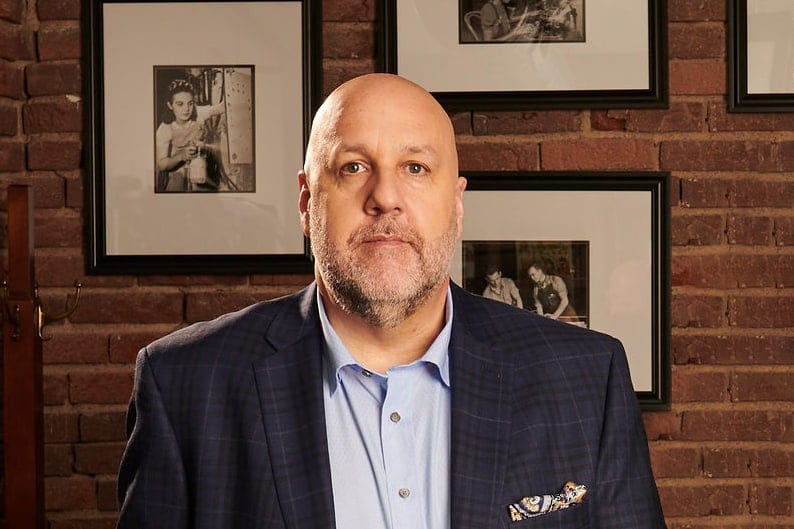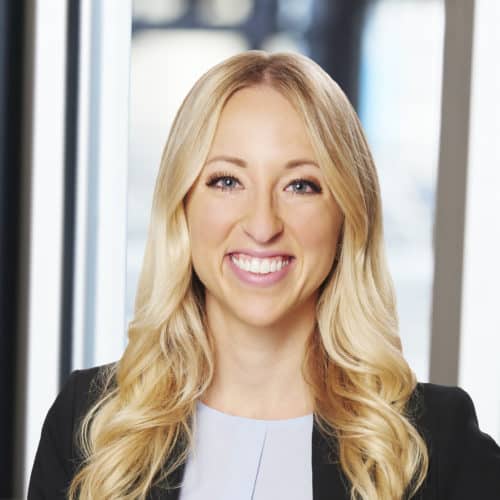2020 SUPER LAWYERS' & RISING STARS' ANNOUNCED
 Each year Super Lawyers recognizes select attorneys from more than 70 practice areas who have attained a high degree of peer recognition and professional achievement. We would like to congratulate Lynch Carpenter Super Lawyers’ Gary Lynch, Katrina Carroll, Todd Carpenter and Ed Kilpela and Rising Stars’ Jamisen Etzel and Kyle Shamberg.
Each year Super Lawyers recognizes select attorneys from more than 70 practice areas who have attained a high degree of peer recognition and professional achievement. We would like to congratulate Lynch Carpenter Super Lawyers’ Gary Lynch, Katrina Carroll, Todd Carpenter and Ed Kilpela and Rising Stars’ Jamisen Etzel and Kyle Shamberg.
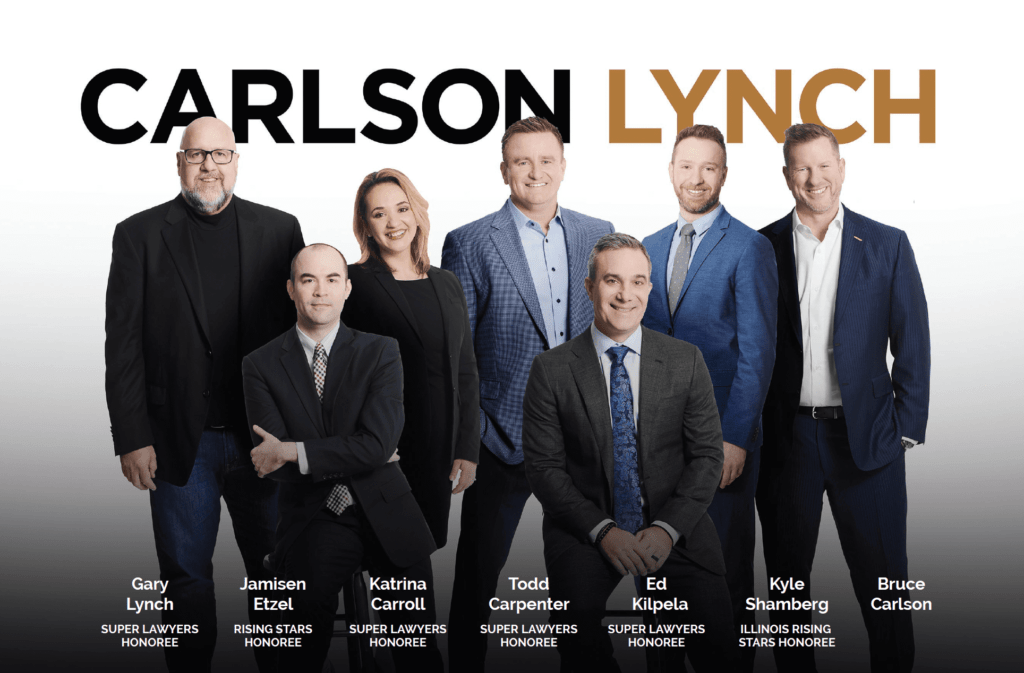
At Lynch Carpenter, our team has been raising the level of discussion, debate and change towards justice in this country for more than thirty years.
“Our team fights for justice every day. We continue to be a voice for those who have been silenced. Congratulations to our team members selected as this year’s Super Lawyers* and Rising Stars** honorees.” -Bruce Carlson and Gary Lynch
Pictured from left to right: Gary Lynch*, Jamisen Etzel**, Katrina Carroll*, Todd Carpenter*, Ed Kilpela*, Kyle Shamberg**, Bruce Carlson
Personal Safety Tips in the Era of Cyber Crime
Someone is trying to steal your data. It has likely happened already, through a hacked email or a social media breach. Hackers work around the clock and all over the world to steal your identity. While they don’t actually care who you are personally, they want the “you” that is inherent in your personal data.
From a legal standpoint, cyber-criminals are difficult to prosecute, because they are experts at covering their tracks. Institutions, on the other hand, are being challenged to protect their clients and employees. When a major breach occurs –millions of accounts are raided. This type of breach is often the result of organizational negligence or the company not adequately protecting a customer’s data.
So how can you protect yourself in the ever-changing landscape of the web?
We’ve compiled a list of quick checks to help you maximize your chance of withstanding a data breach. As technology progresses, it is important to use best practices for cyber-security, at home and at work.

USE STRONG PASSWORDS
This is your primary defense against cyber-criminals. Creating unique passwords for each account may feel like a hazzle but remember this is your main line of defense against spyware, ID theft, and unwanted charges on your account.

USE TWO-FACTOR AUTHENTICATION
You have likely used this before, especially if you bank online or use social media accounts. “2FA” usually requires you to enter a second code, transmitted by text or phone call. Unless a hacker can obtain both your password and phone, 2FA is a powerful shield.

USE A VIRTUAL PRIVATE NETWORK
A VPN is a private network that is usually encrypted, making it very difficult for hackers to break. VPNs are affordable and easy to install, and many workplaces require VPNs for all employees, especially if they work on company laptops at home. If you’ve never used one before, we suggest consulting an expert to ensure your VPN is legitimate and functions properly. (Check the validity of any application before downloading anything off of the internet).

VET YOUR EMAILS AND LINKS
You may still receive misspelled emails from foreign dignitaries, but scammers have become far more sophisticated in recent years. Cyber-criminals routinely hack into email accounts in order to send urgent (and authentic-sounding) requests. If you receive a link that looks at all unfamiliar, do not click it. You may not only contract malware on your device; you could spread it to an entire network.
If you have been a victim of cyber-identity theft and have additional questions about protecting your data, let us know.
Federal Court Rules That Civil Rights Claims Against Uber Must Be Heard in Court
Ruling comes after Uber tried to avoid its legal responsibility to provide transportation accessible for all
 PITTSBURGH, PA (November 13, 2019) – Yesterday, a federal court in Pittsburgh ruled that plaintiffs suing Uber for failing to provide transportation accessible to people with disabilities cannot be forced into arbitration and must have their claims heard openly in federal court.
PITTSBURGH, PA (November 13, 2019) – Yesterday, a federal court in Pittsburgh ruled that plaintiffs suing Uber for failing to provide transportation accessible to people with disabilities cannot be forced into arbitration and must have their claims heard openly in federal court.
Filed on June 11, 2019, the lawsuit seeks modifications to Uber’s policies and practices to ensure that the company makes wheelchair-accessible vehicles readily available to Pittsburgh riders who need them. Plaintiffs do not seek monetary damages.
“We filed this lawsuit to ensure that Uber and other ridesharing companies provide transportation that is accessible to all, including people with disabilities,” said Disability Rights Advocates staff attorney Melissa Riess and Lynch Carpenter LLP Founding Partner R. Bruce Carlson. “Facing a number of accessibility lawsuits around the country, Uber has repeatedly tried to prevent these claims from being heard in court to avoid their legal obligation to provide accessible transportation. This ruling reinforces that the right to accessible transportation is a civil right, and it cannot be denied to our clients or anyone else.
“Plaintiffs are not seeking monetary damages. This suit is not about money. It’s about ensuring an inclusive transportation system for all Pittsburghers.”
The ruling means that the plaintiffs can proceed in federal court and have their claims heard under federal civil rights laws – allowing the case to proceed on the plaintiffs’ claims of systemic discrimination by Uber against people with disabilities.
Drawing on previous rulings in similar cases, the court rejected as “meritless” Uber’s novel argument that people who have not downloaded Uber’s app or signed up to its terms of use could be forced into arbitration and upheld the basic legal principle that someone cannot be bound by a contract they did not agree to.
In addition to the case filed against Uber in Pittsburgh, DRA has filed cases against Uber in New York and California for their failure to serve riders who use wheelchairs. DRA has also filed a case against Uber’s competitor Lyft in California. These cases are critical to protecting the rights of wheelchair-users throughout the country. More background on the case is available here.
# # #
About Disability Rights Advocates
With offices in New York and California, Disability Rights Advocates is the leading nonprofit disability rights legal center in the nation. Its mission is to advance equal rights and opportunity for people with all types of disabilities nationwide. DRA represents people with all types of disabilities in complex, system-changing, class action cases. DRA is proud to have upheld the promise of the ADA since our inception. Thanks to DRA’s precedent-setting work, people with disabilities across the country have dramatically improved access to education, health care, employment, transportation, disaster preparedness planning, voting, and housing. For more information, visit dralegal.org.
About Lynch Carpenter LLP
Lynch Carpenter, LLP is a national class action firm which currently has more than 20 lawyers spread across offices in Pittsburgh, San Diego, Los Angeles, and Chicago. Since 2010, the firm has dedicated significant resources to litigation on behalf of individuals with disabilities. The firm is committed to pursuing impactful cases that advance the interests of the disabled community on the largest possible scale. Lynch Carpenter also regularly litigates class actions involving data breach, privacy, consumer protection, and wage and hour violations
Ruling comes after Uber tried to avoid its legal responsibility to provide transportation accessible for all
 PITTSBURGH, PA (November 13, 2019) – Yesterday, a federal court in Pittsburgh ruled that plaintiffs suing Uber for failing to provide transportation accessible to people with disabilities cannot be forced into arbitration and must have their claims heard openly in federal court.
PITTSBURGH, PA (November 13, 2019) – Yesterday, a federal court in Pittsburgh ruled that plaintiffs suing Uber for failing to provide transportation accessible to people with disabilities cannot be forced into arbitration and must have their claims heard openly in federal court.
Filed on June 11, 2019, the lawsuit seeks modifications to Uber’s policies and practices to ensure that the company makes wheelchair-accessible vehicles readily available to Pittsburgh riders who need them. Plaintiffs do not seek monetary damages.
“We filed this lawsuit to ensure that Uber and other ridesharing companies provide transportation that is accessible to all, including people with disabilities,” said Disability Rights Advocates staff attorney Melissa Riess and Lynch Carpenter LLP Founding Partner R. Bruce Carlson. “Facing a number of accessibility lawsuits around the country, Uber has repeatedly tried to prevent these claims from being heard in court to avoid their legal obligation to provide accessible transportation. This ruling reinforces that the right to accessible transportation is a civil right, and it cannot be denied to our clients or anyone else.
“Plaintiffs are not seeking monetary damages. This suit is not about money. It’s about ensuring an inclusive transportation system for all Pittsburghers.”
The ruling means that the plaintiffs can proceed in federal court and have their claims heard under federal civil rights laws – allowing the case to proceed on the plaintiffs’ claims of systemic discrimination by Uber against people with disabilities.
Drawing on previous rulings in similar cases, the court rejected as “meritless” Uber’s novel argument that people who have not downloaded Uber’s app or signed up to its terms of use could be forced into arbitration and upheld the basic legal principle that someone cannot be bound by a contract they did not agree to.
In addition to the case filed against Uber in Pittsburgh, DRA has filed cases against Uber in New York and California for their failure to serve riders who use wheelchairs. DRA has also filed a case against Uber’s competitor Lyft in California. These cases are critical to protecting the rights of wheelchair-users throughout the country. More background on the case is available here.
# # #
About Disability Rights Advocates
With offices in New York and California, Disability Rights Advocates is the leading nonprofit disability rights legal center in the nation. Its mission is to advance equal rights and opportunity for people with all types of disabilities nationwide. DRA represents people with all types of disabilities in complex, system-changing, class action cases. DRA is proud to have upheld the promise of the ADA since our inception. Thanks to DRA’s precedent-setting work, people with disabilities across the country have dramatically improved access to education, health care, employment, transportation, disaster preparedness planning, voting, and housing. For more information, visit dralegal.org.
About Lynch Carpenter LLP
Lynch Carpenter, LLP is a national class action firm which currently has more than 20 lawyers spread across offices in Pittsburgh, San Diego, Los Angeles, and Chicago. Since 2010, the firm has dedicated significant resources to litigation on behalf of individuals with disabilities. The firm is committed to pursuing impactful cases that advance the interests of the disabled community on the largest possible scale. Lynch Carpenter also regularly litigates class actions involving data breach, privacy, consumer protection, and wage and hour violations
Jamisen Etzel of Lynch Carpenter Wins Affirmance of Class Action Trial Victory
The United States Court of Appeals for the Third Circuit ruled in favor of Lynch Carpenter’s clients and upheld a jury award of more than $4.5 million to a class of dancers who worked for the Penthouse Club in Philadelphia.
The case went to jury trial in March of 2018, and the jury’s award was then appealed by the Penthouse Club. Jamisen Etzel of Lynch Carpenter briefed the appeal and presented oral argument in front of the Third Circuit in Philadelphia on April 17, 2019.
The Third Circuit issued its opinion on August 30, 2019, affirming “across the board” the jury’s $4.5 million verdict for unpaid minimum wages and unjust enrichment under Pennsylvania law. The court also confirmed the district judge’s decision in June 2014 that the dancers were in fact employees of the Penthouse Club and subject to the protections of the Fair Labor Standards Act and the Pennsylvania Minimum Wage Act.
Jamisen Etzel, a graduate of Duquesne University (magna cum laude 2008) and New York University School of Law (J.D. in 2011), represented the class of dancers throughout the pretrial and trial phases of the case, along with Lynch Carpenter Founding Partner, Gary Lynch, Esq., and Co-Counsel Gerald D. Wells, III of Connolly Wells & Gray.
Since joining Lynch Carpenter LLP in 2012, Mr. Etzel has argued in the Third, Fourth, and Eleventh Circuits, and assisted on briefs in the Second and Ninth Circuits and the Supreme Court of Pennsylvania. His appellate work has yielded reported decisions favorable to his clients, including on several matters of first impression. This is his fourth federal appellate victory on behalf of nightclub dancers. The previous cases are: Mickles v. Country Club, Inc., 887 F.3d 1270 (11th Cir. 2018), DeGidio v. Crazy Horse Saloon and Restaurant, Inc., 880 F.3d 135 (4th Cir. 2018), and Herzfeld v. 1416 Chancellor, Inc., 666 F. App’x 124 (3d Cir. 2016).
In 2019, Mr. Etzel was named a Rising Star by Super Lawyers.
The Legal Intelligencer spotlights Attorney of the Year Nominee
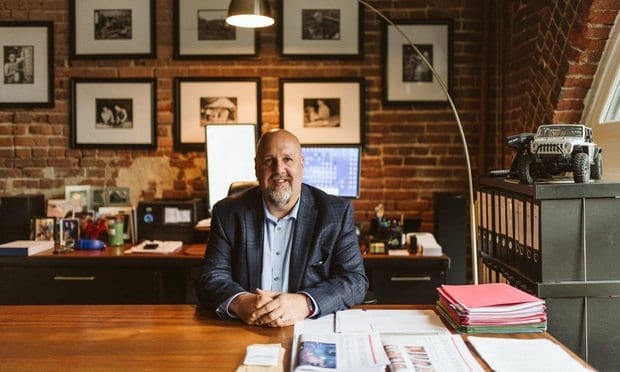
The Legal Intelligencer spotlights Attorney of the Year Nominee and founding Lynch Carpenter LLP partner Gary Lynch, Esq. Gary "is involved in just about every major cyber breach litigation in the U.S., but such cases weren’t always his focus.”
Uber Sued for Discriminating Against Wheelchair-Users
 Lynch Carpenter LLP and Disability Rights Advocates (DRA) filed a class action lawsuit against Uber, challenging the popular ride-sharing service’s failure to make wheelchair-accessible vehicles available in the Pittsburgh area through its rideshare service.
Lynch Carpenter LLP and Disability Rights Advocates (DRA) filed a class action lawsuit against Uber, challenging the popular ride-sharing service’s failure to make wheelchair-accessible vehicles available in the Pittsburgh area through its rideshare service.
Today, Lynch Carpenter LLP and Disability Rights Advocates (DRA) filed a class action lawsuit against Uber, challenging the popular ride-sharing service’s failure to make wheelchair-accessible vehicles available in the Pittsburgh area through its rideshare service. The suit, brought by individuals in and around Pittsburgh, Pennsylvania, challenges Uber’s wheelchair-inaccessibility. The plaintiffs—four individuals who use wheelchairs—brought this action to end Uber’s discriminatory practices and policies.
Since launching its transportation service in San Francisco in July 2010, Uber has experienced explosive growth, has seized an ever-expanding market share from taxi companies, and is now a major provider of individual transportation services in over 450 cities in the United States, including Pittsburgh. However, Uber, a multi-billion-dollar company, does not provide wheelchair-accessible transportation in and around Pittsburgh, in violation of the Americans with Disabilities Act.
Uber has been sued in cities around the United States for its violation of disability laws by failing to provide wheelchair-accessible service, yet it has continued its policy of denying that service.
Uber’s failure to make accessible vehicles available through its service denies people in Pittsburgh who use wheelchairs access to reliable, on-demand transportation that could drastically improve their lives, enabling them to travel to a wider variety of destinations without having to rely on transportation via expensive and unreliable taxis, unreliable paratransit, and limited public transit. It would enable them to travel spontaneously, without having to schedule transportation hours or even days in advance. Unfortunately, Plaintiffs and members of the class are excluded from these benefits, and suffer real harm as a result.
For example, on multiple occasions Plaintiff Paul O’Hanlon has had to travel several miles by wheelchair when he has missed the last city bus. “By reason of my disability I am denied access to Uber’s on-demand transportation that allows others to move around the city on their own schedules,” he said. Similarly, Plaintiff Irma Allen must rely on her son for transportation, which requires him to take time off work and lose a day’s wages. Ms. Allen said, “My family and I are at a distinct disadvantage because Uber doesn’t provide wheelchair-accessible service. It’s not fair that we are being left behind while other folks are enjoying the benefits of Uber’s new technology.”
Michelle Iorio, Staff Attorney at Disability Rights Advocates, said, “Transportation can be a real challenge for people with mobility disabilities, who often don’t have access to their own vehicle and who frequently can’t depend on paratransit because it is unreliable. Accessible ride sharing would facilitate societal integration for persons with disabilities, and Uber’s failure to provide wheelchair-accessible service undermines this potential.”
Echoing this sentiment, Bruce Carlson, a founding partner at national class action firm Lynch Carpenter, LLP, noted: “Uber’s express business plan, as detailed in its regulatory filings, is to displace public transportation with its ride sharing services. The problem is that public transportation, where available, is largely accessible, but Uber’s ride sharing services are not. Uber wants to create a paradigm shift with respect to the provision of transportation services. But will the new paradigm realize the potential of exponentially increasing accessibility, or will it leave individuals with mobility disabilities behind?”
The lawsuit seeks modifications to Uber’s policies and practices to ensure that it makes wheelchair accessible vehicles readily available to persons who need them through its on- demand ridesharing services. Plaintiffs do not seek monetary damages.
In addition to the case filed today against Uber in Pittsburgh, DRA has filed cases against Uber in New York and California for their failure to serve riders who use wheelchairs. DRA has also filed a case against Uber’s competitor Lyft in California. These cases are critical to protecting the rights of wheelchair-users throughout the country.
A copy of the Complaint is available here.
Lynch Carpenter Partner, Kelly Iverson, Top 100 Trial Lawyers in Pennsylvania
 Congratulations to Lynch Carpenter LLP Partner, Kelly K. Iverson for being invited to join The National Trial Lawyers as one of the
Congratulations to Lynch Carpenter LLP Partner, Kelly K. Iverson for being invited to join The National Trial Lawyers as one of the
Top 100 Trial Lawyers in Pennsylvania. Kelly is being recognized as a premier US trial lawyer who exemplifies superior qualifications as civil plaintiff or criminal defense trial lawyers.
Kelly has extensive litigation experience in both state and federal courts and has argued in front of the Superior Court of Pennsylvania.

Lynch Carpenter Super Lawyers & Rising Stars Announced
Every year Super Lawyers selects attorneys from all firm sizes & over 70 practice areas throughout the United States. Congratulations to Super Lawyers' Lynch Carpenter LLP Partner Gary Lynch, Ed Kilpela, & Todd Carpenter and Rising Stars Kelly Iverson, James McGraw & Jamisen Etzel.
Super Lawyers selects attorneys using a patented multiphase selection process. Peer nominations and evaluations are combined with independent research. Each candidate is evaluated on 12 indicators of peer recognition and professional achievement. Selections are made on an annual, state-by-state basis. The objective is to create a credible, comprehensive and diverse listing of outstanding attorneys that can be used as a resource for attorneys and consumers searching for legal counsel. Since Super Lawyers is intended to be used as an aid in selecting a lawyer, it limits the lawyer ratings to those who can be hired and retained by the public.
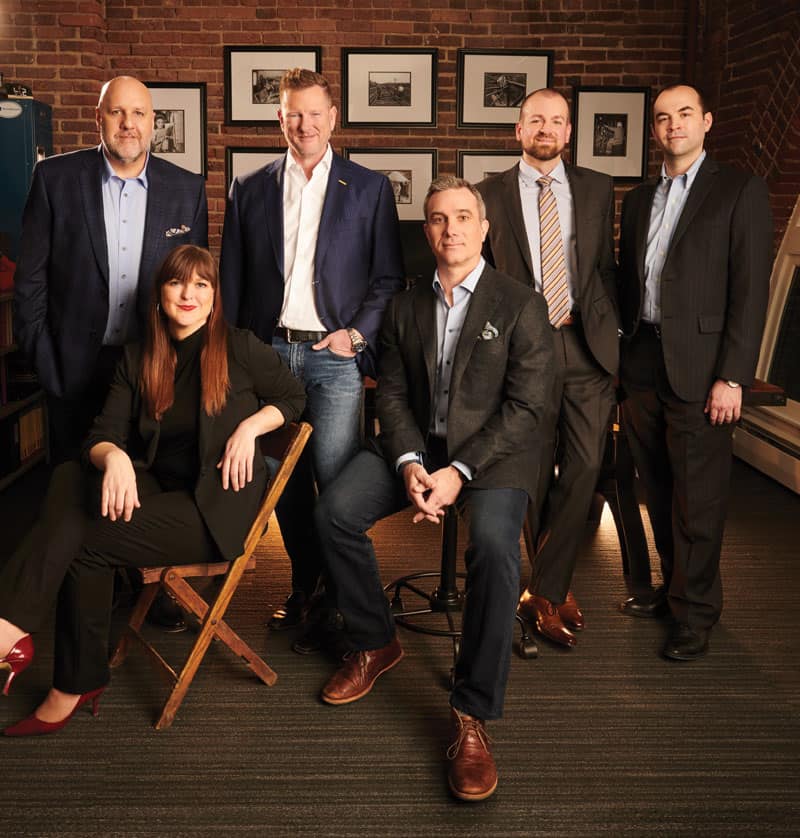
At Lynch Carpenter, our team has been elevating the level of discussion, debate and change towards justice in this country for more than thirty years.
"As we continue to raise the bar fighting for the rights of men & women, we congratulate this group for being selected this year's Super Lawyers* and Rising Stars** recipients." -Bruce Carlson and Gary Lynch
Pictured from left to right: Gary Lynch*, Kelly Iverson**, Bruce Carlson, Ed Kilpela*, James McGraw**, Jamisen Etzel**
Lynch Carpenter Partner, Gary Lynch Name the Legal Intelligencer Attorney of the Year Finalist
 Today, the Legal Intelligencer announced the 2019 Professional Excellence Award winners, highlighting the great work and achievements across the full breadth of the Pennsylvania legal community and naming Gary Lynch, a partner of Lynch Carpenter, Attorney of the Year Finalist.
Today, the Legal Intelligencer announced the 2019 Professional Excellence Award winners, highlighting the great work and achievements across the full breadth of the Pennsylvania legal community and naming Gary Lynch, a partner of Lynch Carpenter, Attorney of the Year Finalist.
In the 2018 landmark cybersecurity and data privacy case, Lynch successfully argued before the Pennsylvania Supreme Court that companies have a common-law duty to protect their electronically stored employee data. The high court’s ruling reversed two controversial lower court rulings that had tossed out a lawsuit against UPMC over a data breach that exposed the personal information of tens of thousands of current and former employees.
Earlier in 2018, Lynch was appointed co-lead counsel of national multidistrict litigation brought by over 70 financial institutions against Equifax, related to the company’s 2017 data breach.
Lynch is helping to shape the emerging area of data breach and privacy law through his work on several cases over the past few years, including data breach litigation involving Target, Home Depot, UPMC and Wendy’s. He was co-lead counsel for the financial institutions suing Home Depot, following the home improvement retailer’s 2014 data breach and on the five-person executive committee overseeing the prosecution of nationwide litigation against Target for its 2013 breach.
In addition to his work in the cyber security arena, Lynch continued his consumer protection and employee wage and hour practice in 2018, serving as co-lead for plaintiffs in a trial against the Penthouse Club in Philadelphia and securing a verdict of $4.5 Million on behalf of a class of exotic dancers who were misclassified as independent contractors by the night club.
Using Motor-Voter Rolls Can Enhance Inclusiveness in Jury Pools

Editor's note: On October 2, 2018, the California Secretary of State reported a record 19 million registered voters are now on the rolls. According to Paul Mitchell, head of Political Data, Inc., much of the rise in registered voters is the new California Department of Motor Vehicle program that automatically signs up voters or updates their address, when they renew drivers' licenses and identification cards. The DMV process has had some "bumps in the road." By the end of 2018, the DMV reports 23,000 mistakes including duplicate registration and incorrect part affiliation and 1,500 improper registrations of parolees, noncitizens and minors!

A United States citizen’s entitlement to a jury of one’s peers is a touchstone of our justice system and rooted in the Constitution’s right to trial by an impartial jury. Recognizing this democratic principle and striving to achieve adequate representation and inclusiveness in our federal jury panels is critical not only to afford criminal defendants a fair trial, but also essential to foster an environment of active public engagement and to support public confidence in “the process.”
Many district courts in the Ninth Circuit can vastly benefit by supplementing current source lists for their master jury wheels with driver’s license rolls. Currently, most impanelment lists in this circuit are compromised only of voter registration lists. The Ninth Circuit Jury Trial Improvement Committee has recommended the use of motor-voter pools in its Model Plan “in order to increase inclusiveness and to provide better representation of the adult citizen population who are qualified to serve as jurors.” Ninth Circuit Jury Trial Improvement Committee, First Report on Goals and Recommendations (“First Report”), May 2004, p. 4. Adopting the recommended practice of using motor-voter pools to populate jury panels would aid in efficiently reaching the maximum number of qualified citizens to serve as jurors, and would assist in diversifying jury panels to reflect the U.S. citizen population accurately.
The Federal Jury Selection and Service Act of 1968 declares “[i]t is the policy of the United States that all litigants in Federal courts entitled to a trial by jury shall have the right to . . . juries . . . from a fair cross section of the community . . .” 28 U.S.C. § 1861. The Act recognizes that voter lists are the primary source for jury impanelment lists but encourages federal courts to “prescribe some other source or sources . . . where necessary to foster the policy [of representation of a cross section].” 28 U.S.C. § 1863(b)(2); § 1861. In relevant part to this article, the two major requirements an individual must satisfy to be legally qualified to serve on a federal jury is that he or she (1) is a United States citizen and (2) is at least 18 years old. See 28 U.S.C. § 1865(b). Accordingly, voter rolls have historically been a widely accepted method used to create jury panels. In fact, there are currently eight districts in the Ninth Circuit that still utilize only voter lists for populating their jury panels: Alaska, Arizona, Central District of California, Southern District of California, Guam, Nevada, Northern Mariana Islands, and Oregon. However, voter rolls present a wide array of shortcomings that impede upon attaining jury inclusiveness.
Voter lists fail to constitute a “fair cross section of the community” primarily because minorities, the young, and the poor tend to register to vote and vote at lower rates than the remainder of the eligible population. See Jeffrey Abramson, “We, The Jury: The Jury System and the Ideal of Democracy,” at p. 128 (1994). Indeed, national census statistics reveal, “voter registration lists tend to disproportionately represent persons when compared to the total U.S. citizen population in certain age, income, employment classifications, and education categories.” First Report, p. 4. This phenomenon can be attributed in part to the failure of voter registration lists to keep up with the progression of technology, and as a result, voter lists ultimately fail to capture an accurate composition of eligible citizens. To illustrate, PEW researchers estimate at least 51 million eligible U.S. citizens are unregistered, representing more than 24 percent of the eligible population. See PEW, Election Initiatives “Inaccurate, Costly, and Inefficient: Evidence That America’s Voter Registration System Needs an Upgrade,” February 2012, p. 8. One reason for such a significant number of unregistered citizens is that archaic, “paper-based processes” used for voter registration fail to keep up with changes in individuals’ names, addresses, and/or party affiliations, thus, resulting in inaccurate and incomplete data.
The Ninth Circuit’s reach fares slightly better than the U.S. overall in that voter registration lists contain approximately 66 percent of the adult citizen population in the states that comprise the circuit. However, these percentages are wholly inadequate in light of the benchmarks for adequate source list coverage established by the American Bar Association (80 percent) and the National Center for State Courts (85 percent).
State programs, such as California’s New Motor Voter Program, are working to increase voter registration and will ultimately enhance inclusiveness for jury pools. See generally AB 1461. In April 2018, the California DMV began to automatically register qualified driver’s license applicants to vote when they renew or obtain a driver’s license, unless the applicant expressly opts out. Excluded from automatic voter registration are undocumented Californians who maintain drivers’ licenses pursuant to AB 60. See California Secretary of State, California Motor Voter, located at https://www.sos.ca.gov/ elections/california-motor-voter/. Under the program, the DMV sends voter information electronically to the California Secretary of State’s Office, which then verifies citizenship requirements. Importantly, the DMV and SOS will work conjunctively to ensure that individuals with AB 60 drivers’ licenses are not eligible to participate in the program.
California DMV spokesperson Jessica Gonzalez reported that the DMV has “programming in place” to prevent inadvertent voter registration of non-citizens. Moreover, Secretary of State Alex Padilla assures the security of voter registration under the new law, as potential voters will “have to demonstrate proof of age, [and] the vast majority of time people are showing a birth certificate or a passport, which also reflects citizenship. That’s arguably more secure than someone checking a box under penalty of perjury.” Samantha Lachman, Huffington Post, Jerry Brown Signs Automatic Voter Registration in California, October 10, 2015, at https://www.huffingtonpost.com/entry/automatic-voter-registration-california_us_561680d5e4b0082030a15119.
Lastly, voter pre-registration is available under the program for 16 and 17-year-olds, ensuring a greater presence of the younger population on future jury panels. Undoubtedly, this law advances the goal of attaining more representative jury pools for the remaining California district courts that have not yet added drivers’ license lists to their master wheels.
The committee is confident that supplementing current voter registration lists with drivers’ license lists would provide the most comprehensive coverage of eligible citizens—drivers’ license lists alone account for “more than 90 percent of the adult citizen population in the Ninth Circuit states.” First Report at p. 4. Accordingly, adding drivers’ license lists to federal impanelment wheels would ensure superior reach to all eligible U.S. citizens, increase public participation, significantly expand jury inclusiveness, and bolster the integrity of the justice system.








